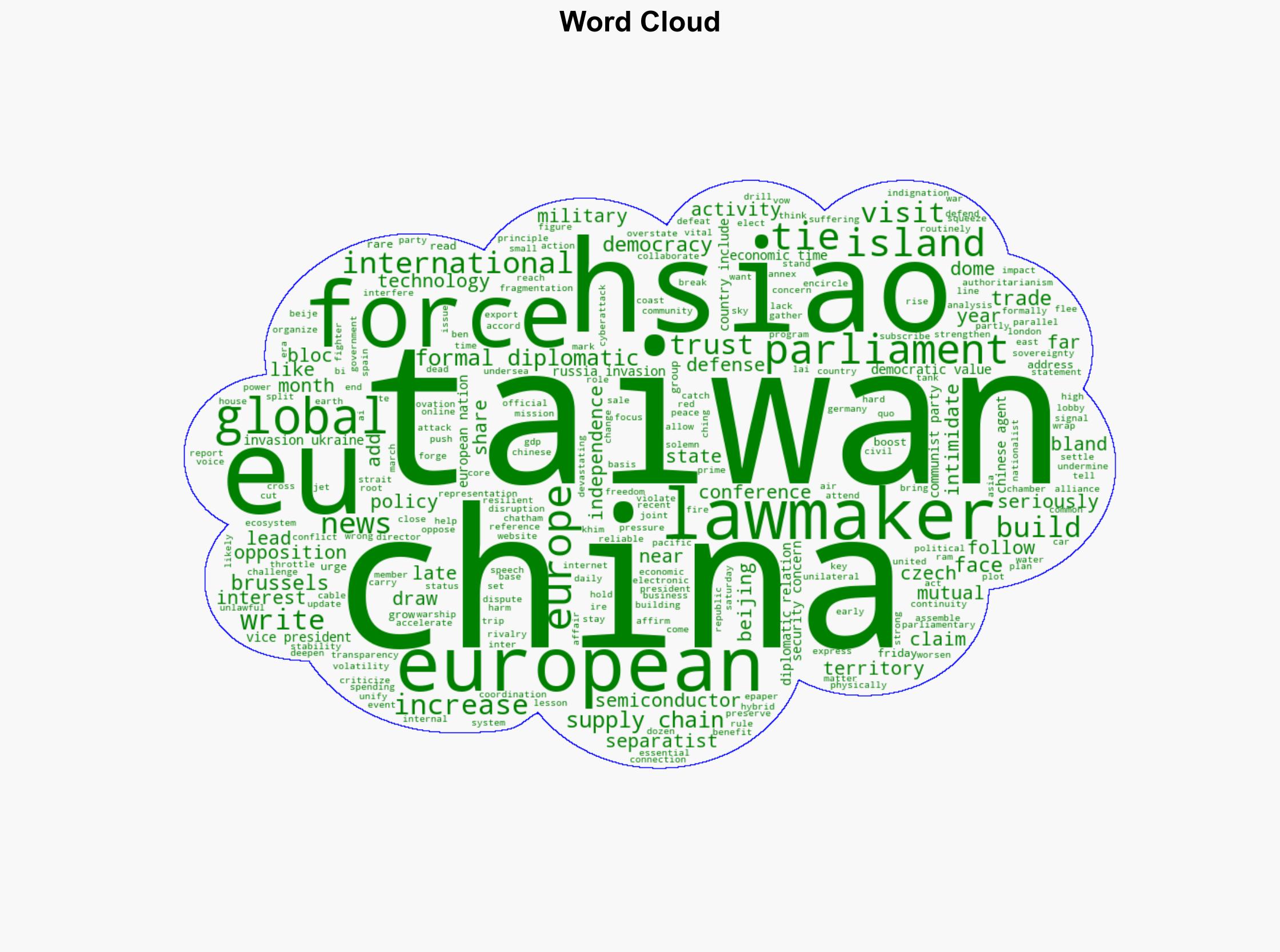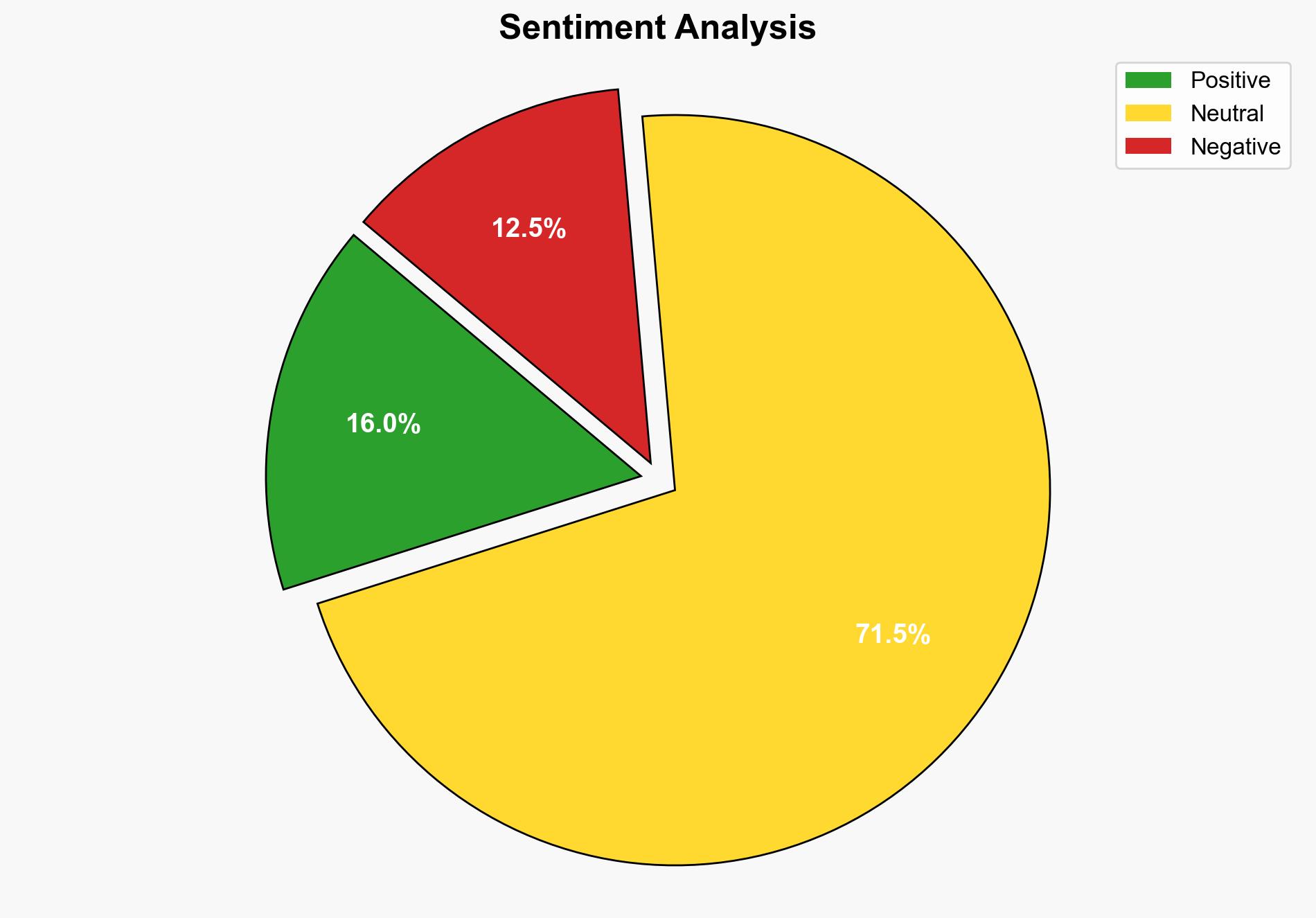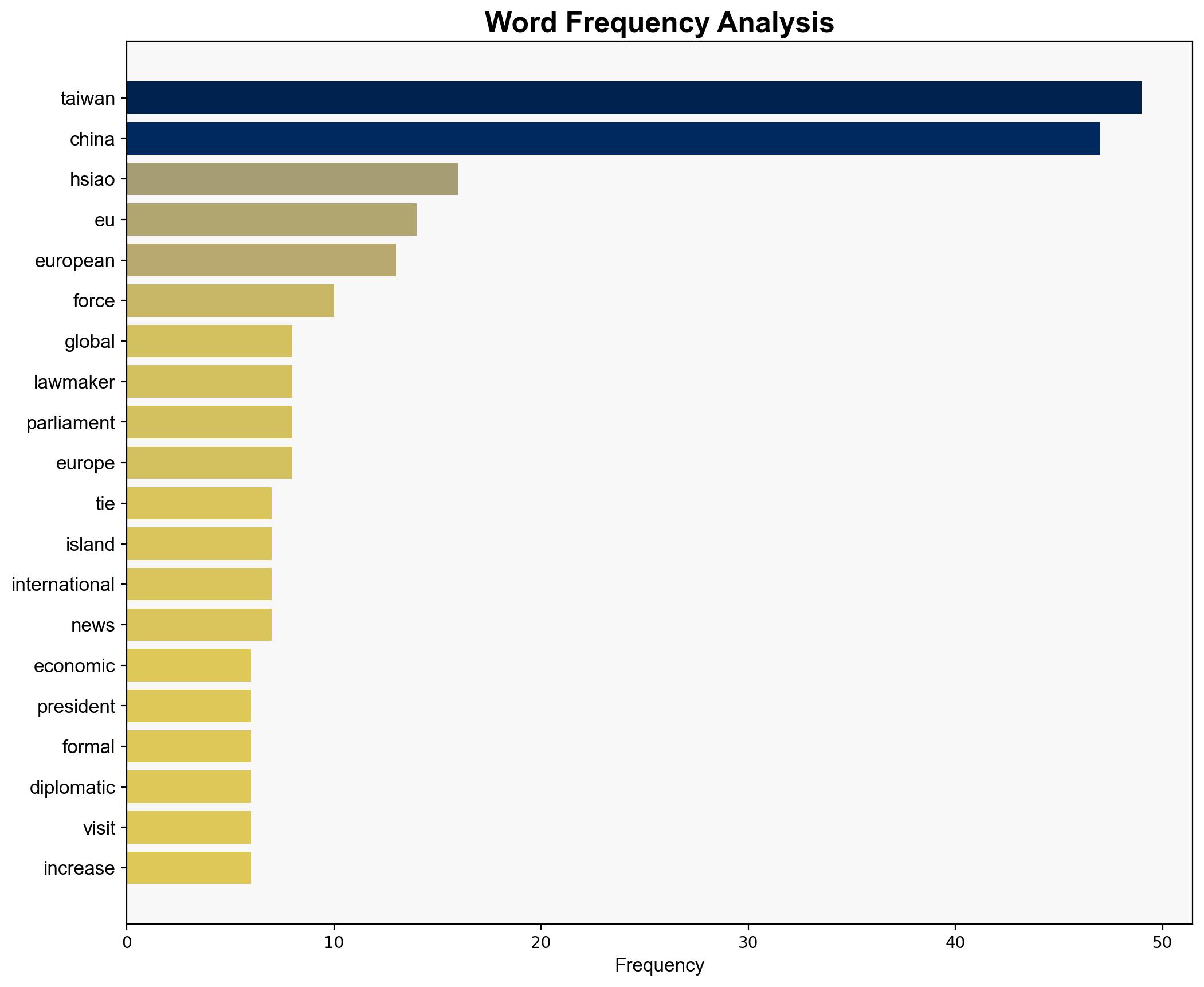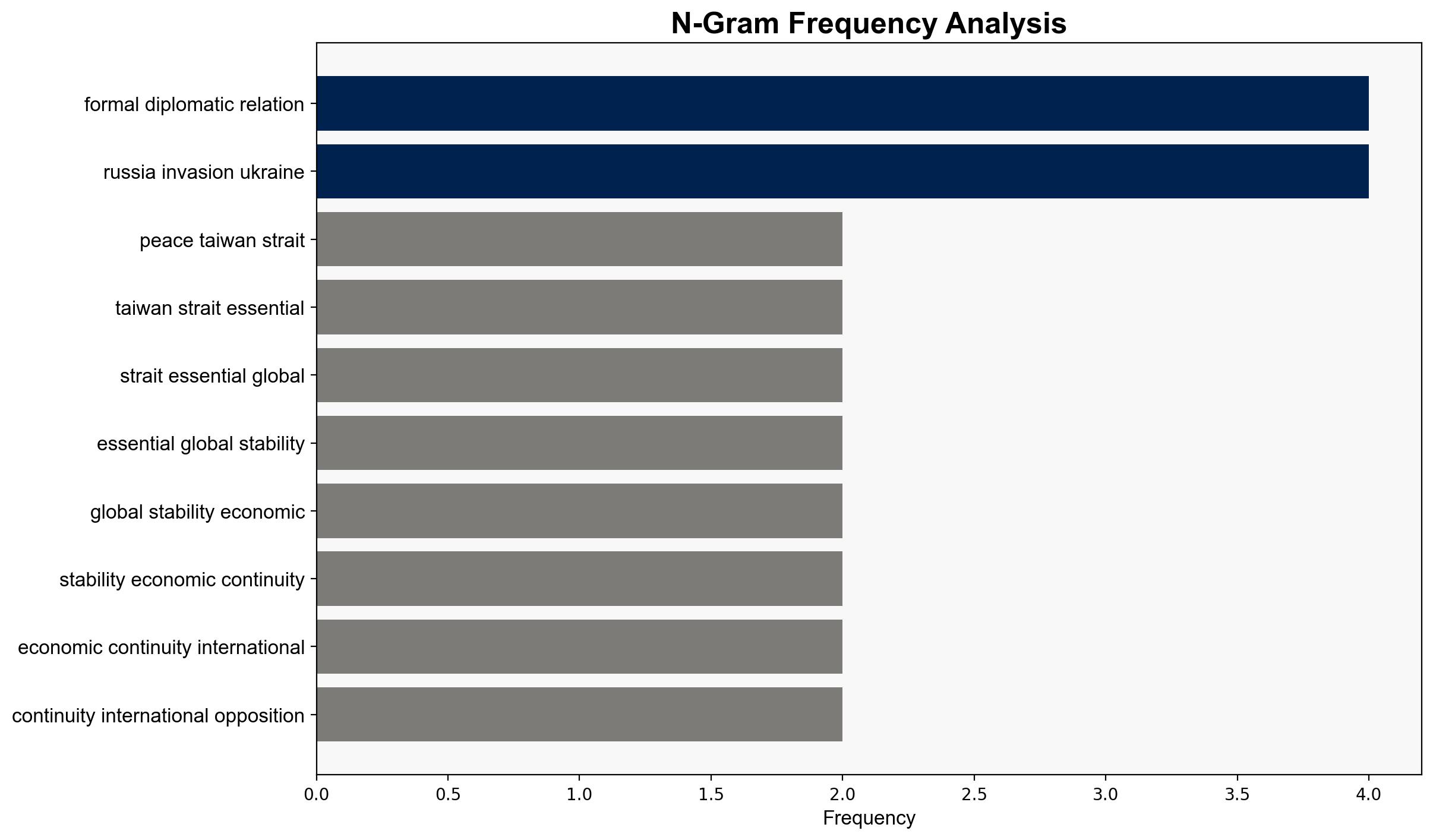Taiwan’s vice president calls for closer EU ties in rare address to international lawmakers – The Times of India
Published on: 2025-11-08
Intelligence Report: Taiwan’s vice president calls for closer EU ties in rare address to international lawmakers – The Times of India
1. BLUF (Bottom Line Up Front)
Taiwan’s vice president’s call for closer ties with the EU is a strategic maneuver to bolster Taiwan’s international standing and security amidst growing Chinese aggression. The most supported hypothesis is that Taiwan seeks to strengthen its geopolitical alliances to deter Chinese threats. Confidence level: Moderate. Recommended action: Encourage EU-Taiwan collaboration in technology and security sectors while monitoring China’s response to mitigate potential escalations.
2. Competing Hypotheses
1. **Taiwan’s Strategic Diversification Hypothesis**: Taiwan is actively seeking to diversify its international alliances, particularly with the EU, to counterbalance Chinese influence and ensure its security and economic stability.
2. **Symbolic Gesture Hypothesis**: The address is primarily symbolic, aimed at reinforcing Taiwan’s democratic values and gaining moral support from the international community without expecting significant policy shifts from the EU.
Structured Analytic Techniques (SATs) Application
Using ACH 2.0, the first hypothesis is better supported by Taiwan’s explicit calls for collaboration in technology and security, aligning with strategic diversification goals. The second hypothesis, while plausible, lacks concrete evidence of expected policy changes from the EU.
3. Key Assumptions and Red Flags
– **Assumptions**: Taiwan assumes the EU is willing to risk economic and diplomatic tensions with China to support Taiwan. The EU’s commitment to democratic values will translate into tangible support.
– **Red Flags**: China’s strong opposition and potential retaliatory measures could deter EU engagement. The lack of formal diplomatic relations between the EU and Taiwan may limit the effectiveness of any agreements.
4. Implications and Strategic Risks
– **Geopolitical Risks**: Increased EU-Taiwan ties could escalate tensions with China, potentially leading to economic sanctions or military posturing.
– **Economic Implications**: Strengthening ties with Taiwan could enhance the EU’s technology sector but might risk trade relations with China.
– **Cybersecurity Threats**: Taiwan’s mention of cyberattacks highlights the risk of increased cyber threats from China to EU infrastructure.
5. Recommendations and Outlook
- Encourage EU-Taiwan collaboration in non-sensitive sectors like technology and education to build trust without provoking China.
- Monitor China’s response to gauge potential escalations and prepare contingency plans for economic or cyber retaliations.
- Scenario Projections:
- Best: EU and Taiwan establish a robust partnership enhancing regional security and economic growth.
- Worst: China retaliates with economic sanctions and increased military presence, destabilizing the region.
- Most Likely: Incremental improvements in EU-Taiwan relations with cautious EU engagement to avoid provoking China.
6. Key Individuals and Entities
– Bi-khim Hsiao (Taiwan’s vice president)
– European Union lawmakers
– Chinese government representatives
7. Thematic Tags
national security threats, cybersecurity, geopolitical strategy, EU-Taiwan relations, China-Taiwan tensions





